
 Flash News
Flash News
Gunfire in Durres, a 30-year-old man is injured
Accident on Arbri Street, car goes off the road, two injured
Arrests of "Bankers Petrolium", Prosecution provides details: Exported and sold 532 billion lek of oil, caused millions of euros in damage to the state
Ndahet nga jeta tragjikisht në moshën 28-vjeçare ylli i Liverpool, Diogo Jota
Posta e mëngjesit/ Me 2 rreshta: Çfarë pati rëndësi dje në Shqipëri
BIRN: The daily migration to Montenegro empties Shkodra of its workforce

For Ilir Dibra, a carpenter from Shkodra, working in Montenegro was not an easy choice, but a necessity dictated by the economic difficulties in his city. He has been working for nine years as a carpenter in Ulcinj - where he says that the working conditions and wages are better than in Albania.
"Here the salaries for woodworking are higher. We are provided with work papers and we are paid social security. I hope that these years will be recognized for us very soon, because the number of Albanians working here is considerable," said Dibra.
Dibra is just one of the hundreds of residents of Shkodra district, who are working in the neighboring country of Montenegro. While official statistics are missing, local government representatives say that hundreds of workers from the Shkodra area and its surroundings travel every day for work in Montenegro, mainly in Ulcinj.
"This movement of residents from the whole area and the villages, which are close to the border with Montenegro, has led to a departure of the workforce due to the salary level," says Adnan Shullani, administrator of the Ana e Mali Administrative Unit. , border area with Montenegro.
At the Muriqani border crossing, workers cross in groups every morning.
Eraldi and Ili, two young men from Muriqani, told BIRN that they leave every morning at 5:00 a.m. and return around 4:00 p.m. The boys say that they were forced to look for work in Montenegro, since after finishing school they could not find space in the labor market in their country.
"Almost all the young boys of the area start work there, some deal with the tourism sector and others with the harvesting of seasonal fruits. We had an offer from a factory, which, as beginners, offered us 30 euros a day, and then we could spend 50 euros a day," says Eraldi.
Young people say that working conditions in the neighboring country are much better than in Shkodër. In addition to a satisfactory salary, they are provided with transportation, lunch and an hour of rest per day. "In our area this is considered a luxury," they say.
However, such a situation has brought its effects on the local market, especially in Shkodër and Malësi i Madhe, and in the areas near the border points, such as Muriqani and Hani i Hoti.
With the departure of professionals and young people to Montenegro, local or family businesses in sectors such as construction, carpentry and manufacturing are facing difficulties in finding qualified labor.
"This has caused many businesses to face difficulties and turn to family businesses, where everyone works together, as it is difficult to find manpower. Salary competition is what affects this phenomenon," says Shullani.
The administrator of Anna e Mali says that the phenomenon became visible when the common customs that connects Albania with Montenegro was opened in Muriqan.
"The demand for workers from Ulcinj and then from other cities with higher salaries than those of private businesses in Albania has pushed residents to look for work across the border. Some of them travel every day in the morning and return in the afternoon, while there are also those who stay for weeks and return only on weekends," he says.
There is no official data on this daily or weekly emigration, despite the fact that the flow is visible. The local police of Shkodra, through an official email, told BIRN that they did not record the reasons for crossing the border and had no statistics. This lack of official data creates a gap in the full understanding of the phenomenon and the impact it has on the labor market in Albania.
Simon Shkreli, journalist and actor at the Migjeni Theater, who is originally from Ulcinj, says that the phenomenon is increasingly sensitive.
"In Shkodër it is extremely difficult to find a person for a minimal service, such as an electrician for changing a plug or a porter. As for the construction brigades, they no longer exist. In agriculture and animal husbandry, farmers have been forced to reduce herds and reduce production due to the lack of workers. This has had an extremely negative impact," says Shkreli.
According to Shkreli, Ulcinj did not offer opportunities years ago, but recently it has transformed into a city where tourism and production are constantly growing.
"After graduating from the Faculty of Arts in Prishtina, in 2004, I returned to Ulcinj. But there, just like today, there was neither a theater, nor a cinema, nor an art gallery. Media was a big word to describe what could be called local media,” he recalls.
He says that 10 years ago, Ulcinj had a large emigration, but now we can talk about internal migration. The rural areas around the city are getting closer and closer to the suburbs, and this is because of the urban plan that allows the construction of 25,000 buildings.
"This has created a need for many workers, and the number of Albanians working in Montenegro has increased," he says.
In Ulcin there are about 550 Albanian workers who work throughout the year in various sectors, such as construction and hospitality. During the summer season, this number increases even more, as the payments are higher and the treatment is better.
According to him, the daily wage in Ulcinj is 40 euros for 8 hours of work and food and sleep are guaranteed. "This is the reason why there are so many Albanians working in Montenegro. At the end of the day, everyone works where they are paid the most," concludes Shkreli. Reporter.al
Latest news








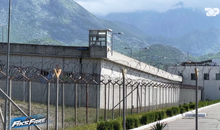

Greece imposes fee to visit Santorini, how many euros tourists must pay
2025-07-03 20:50:37
Don't make fun of the highlanders, Elisa!
2025-07-03 20:43:43
Gunfire in Durres, a 30-year-old man is injured
2025-07-03 20:30:52

The recount in Fier cast doubt on the integrity of the vote
2025-07-03 20:09:03




Heatwave has left at least 9 dead this week in Europe
2025-07-03 19:00:01

Oil exploitation, Bankers accused of 20-year fraud scheme
2025-07-03 18:33:52
Three drinks that make you sweat less in the summer
2025-07-03 18:19:35
What we know so far about the deaths of Diogo Jota and his brother André Silva
2025-07-03 18:01:56



Another heat wave is expected to grip Europe
2025-07-03 17:10:58

Accident on Arbri Street, car goes off the road, two injured
2025-07-03 16:45:27

Accused of two murders, England says "NO" to Ilirjan Zeqaj's extradition
2025-07-03 16:25:05




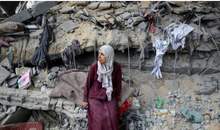
Gaza rescue teams: Israeli forces killed 25 people, 12 in shelters
2025-07-03 15:08:43
Diddy's trial ends, producer denied bail
2025-07-03 15:02:41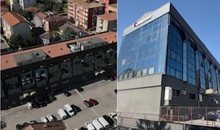

Agricultural production costs are rising rapidly, 4.8% in 2024
2025-07-03 14:55:13
Warning signs of poor blood circulation
2025-07-03 14:49:47
Croatia recommends its citizens not to travel to Serbia
2025-07-03 14:31:19
Berisha: Albania is the blackest stain in Europe for the export of emigrants
2025-07-03 14:20:19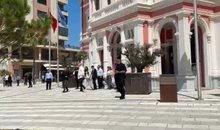


'Ministry of Smoke': Activists Blame Government for Wasteland Fires
2025-07-03 13:59:09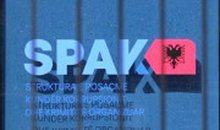

AFF message of condolences for the tragic loss of Diogo Jota and his brother
2025-07-03 13:41:36
Five healthy foods you should add to your diet
2025-07-03 13:30:19






A unique summer season, full of rhythm and rewards for Credins bank customers!
2025-07-03 12:12:20

Fire situation in the country, 29 fires reported in 24 hours
2025-07-03 12:00:04
The constitution of the Kosovo Assembly fails for the 41st time
2025-07-03 11:59:57
The gendering of politics
2025-07-03 11:48:36

The price we pay after the "elections"
2025-07-03 11:25:39

Xhafa: The fire at the Elbasan landfill was deliberately lit to destroy evidence
2025-07-03 11:08:43

The 3 zodiac signs that will have financial growth during July
2025-07-03 10:48:01
Democratic MP talks about the incinerator, Spiropali turns off her microphone
2025-07-03 10:39:24

Ndahet nga jeta tragjikisht në moshën 28-vjeçare ylli i Liverpool, Diogo Jota
2025-07-03 10:21:03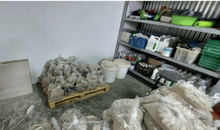
Cocaine trafficking network in Greece, including Albanians, uncovered
2025-07-03 10:10:12



Korreshi: Election manipulation began long before the voting date
2025-07-03 09:39:13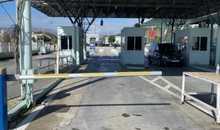
Arrest of Greek customs officer 'paralyzes' vehicle traffic at Qafë Botë
2025-07-03 09:28:41
After Tirana and Fier, the boxes are opened in Durrës today
2025-07-03 09:21:10
Enea Mihaj transfers to the USA, will play as an opponent of Messi and Uzun
2025-07-03 09:10:04

Foreign exchange, the rate at which foreign currencies are sold and bought
2025-07-03 08:53:50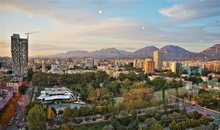
Index, Albania has the worst quality of life in Europe
2025-07-03 08:48:10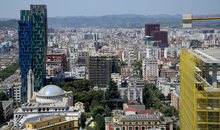


Horoscope, what do the stars have in store for you today?
2025-07-03 08:17:05
Clear weather and high temperatures, here's the forecast for this Thursday
2025-07-03 08:00:37
Posta e mëngjesit/ Me 2 rreshta: Çfarë pati rëndësi dje në Shqipëri
2025-07-03 07:46:48



Lufta në Gaza/ Pse Netanyahu do vetëm një armëpushim 60-ditor, jo të përhershëm?
2025-07-02 21:56:08
US suspends some military aid to Ukraine
2025-07-02 21:40:55



Methadone shortage, users return to heroin: We steal to buy it
2025-07-02 20:57:35
Government enters oil market, Rama: New price for consumers
2025-07-02 20:43:30
WHO calls for 50% price hike for tobacco, alcohol and sugary drinks
2025-07-02 20:41:53



